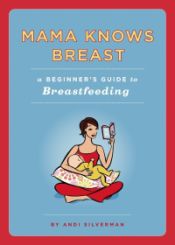 Breastfeeding is a very natural thing. You would think one hungry baby and two specially designed, milk production units would just naturally get along. Well, they might, or they might need a bit of support. If breastfeeding is a bit of a challenge for you, don’t despair, and don’t ever hesitate to contact your pediatrician or a lactation expert if you have any questions or concerns about the breast feeding process. Many issues can be resolved easier if they are addressed sooner rather than later.
Breastfeeding is a very natural thing. You would think one hungry baby and two specially designed, milk production units would just naturally get along. Well, they might, or they might need a bit of support. If breastfeeding is a bit of a challenge for you, don’t despair, and don’t ever hesitate to contact your pediatrician or a lactation expert if you have any questions or concerns about the breast feeding process. Many issues can be resolved easier if they are addressed sooner rather than later.
Some babies manage to latch on immediately after birth; others can take more time to get the hang of it. Sometimes you find that nurses try to get you to nurse right away when baby just isn’t hungry yet. So give it a try for a day or two and then contact that lactation consultant.
If hungry, having the newborn nurse right after birth is ideal. The sucking action triggers the release of hormones that help the uterus contract and expel the placenta. Feeling cramps or “after pains” during the first few days or weeks after delivery is normal and helps the uterus return to its normal size. If you are not able to nurse in the first few hours, or even the first day or two, there should be no physical difficulties with establishing nursing.
Improper positioning and latching on are the most common culprits of nursing problems and the easiest resolved, often causing pain while nursing. Sore nipples are common in the early stages of nursing, but should resolve fairly quickly. If it is severe, or you see fissures, cracks, swelling, contact your lactation specialist who can help you make the necessary adjustments.
necessary adjustments.
Engorgement is another common issue to be dealt with by nursing mothers. The breasts become swollen with milk, creating a “full” feeling for mom (and sometimes pain) and difficulty for baby to latch on. The easiest treatment is nursing on demand or pumping/expressing the milk (save and freeze for later use).
Breast fed babies tend to eat more frequently than their formula-fed counterparts. Newborns will nurse eight to twelve or more times during a twenty-four hour period. That’s a lot of time at the breast. Nursing baby in a sling or using a nursing privacy cover will help protect mom’s privacy while out and about in public places.
If you bottle feed check out natural glass bottles.



